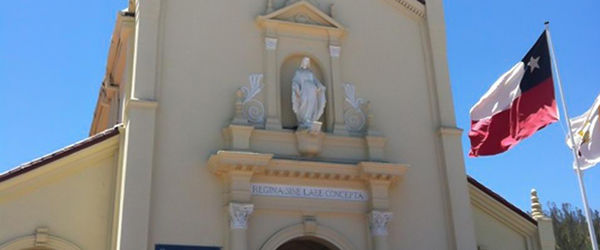Near the end of the Fifth Crusade, in August 1219, St. Francis of Assisi traveled to Egypt to meet with a Muslim leader, Sultan Malik al-Kamil. We do not know what the two talked about. But almost since that day, St. Francis’ name has been linked to two strong desires of our human hearts — peace among peoples and dialogue among religious believers.
Recently, Pope Benedict XVI invoked the spirit of St. Francis by inviting representatives of the world’s religions and Christian denominations to Assisi for a “day of reflection, dialogue and prayer for peace and justice in the world.”
Our Holy Father was recalling the 25th anniversary of the historic meeting of world religions at Assisi called by Blessed John Paul II in 1986.
Times have changed since that first meeting, as the Pope noted.
The “fault lines” in our world today are increasingly religious. What divides men and women, and nations and peoples, often has to do with religion.
On the one hand, mainly in the nations of the West, we see a hostile secularism that seeks to eliminate religion altogether from society. Elsewhere, across much of Asia and the Middle East, and parts of Africa, we see those who would use violence and political means to impose their religion on others.
So as believers, there is real urgency for us to build understanding and friendships and to work together for peace and a better world.
So how should we work together? How should we as Catholics understand our faith in a world filled with many religions?
God’s truth is one. So we never want to fall into the trap of relativism, which says there are many “truths” and that all beliefs are equally true. And we never want to make the mistake of syncretism, trying to mix and match the good ideas we find in the world’s religions, as if all religions are basically the same as ours.
True dialogue is more challenging — and more exciting and fruitful.
We need to respect others’ beliefs so much that we take our differences seriously. It does not show respect to pretend that we have no differences or that these differences do not matter.
If we really respect others’ freedom and conscience, if we are really committed to seeking the truth in love, then we will not stay silent or try to avoid those areas where we disagree.
True dialogue always starts with proclamation. We have to proclaim to others our faith in Jesus Christ. And we have to listen attentively as others proclaim their beliefs to us. Only on this basis do we have a real dialogue, in which both sides are freely following their conscience and seeking to obey the truth as they understand it.
As Christians, we believe that out of all the beautiful expressions of religious desire in human history, the revelation of Jesus Christ is unique. We believe that Jesus is who he says he is — the only begotten Son of God; the way, the truth and the life; and the only name under heaven by which we are saved.
This should never translate for us into arrogance or disregard for what others believe. In fact, just the opposite.
Our faith that God is our Father means that all men and women are our brothers and sisters, no matter what their religious beliefs.
The great religions of the world seek to answer the “ultimate questions” we all hold in our hearts: What is the meaning of life? Why is there evil and suffering? What is the way of true happiness? What happens when we die?
We have so much to share with those who do not share our faith in Jesus Christ!
As our Holy Father continues to remind us, true religion is a journey to God and a journey to friendship with others. “The journey of the spirit is always a journey of peace,” he says.
That is the spirit of St. Francis. It is the spirit our world needs right now.
California was evangelized by the Franciscans, the spiritual children of St. Francis. Our city and Archdiocese of Los Angeles are named for the chapel where St. Francis himself used to pray — the Portiuncula, or Church of Our Lady of the Angels.
So we have a special vocation to spread the spirit of St. Francis and the hope of Assisi.
St. Francis used to greet people with a little prayer: “May the Lord grant you peace.” This week, let us make that the prayer we pray for one another.
And let us ask Our Lady of the Angels for the gift of peace — for our city and our world.
Follow Archbishop Gomez at: www.facebook.com/ArchbishopGomez.
{gallery width=100 height=100}gallery/2011/1111/gomezcol/{/gallery}

